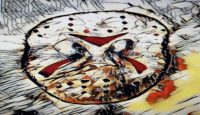Michael Caine once said about Jaws the Revenge: “I have never seen it, but by all accounts, it is terrible. However, I have seen the house that it built, and it is terrific.” I love this quote and feel this exemplifies Michael Caine more than any book, film, or discussion ever could. There’s a reason I brought this quote up, but that’ll be the garnish for the main course of this article: Crystal Lake Memories: The Complete History of Friday the 13th.
Everyone who’s ever been a kid, which is all of us, grew up wanting to be something. Maybe you dreamt of following your parents into the family business, or you wanted nothing to do with them and forge your path. You may lean into your generous side and help others by becoming a nurse or becoming a professor. Every one of us has thought about what we wanted to pursue in life—the question is, who would we join in that pursuit?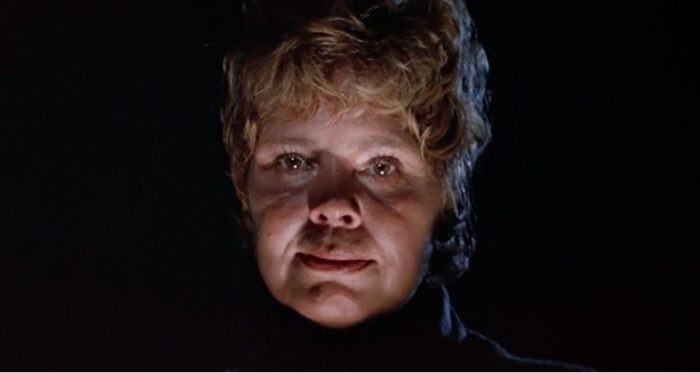
When I was a kid, my dream was to work in pictures. I am playing coy and not saying I wanted to be an actor or director, but the truth is, I didn’t know what part of a production I wanted to join. The only thing I knew was that I wanted to be a part of the film process. Flash forward to my adult years, and that feeling is still there, but I haven’t quite gotten to where I want to be. I can say that I got a film made and took the first step of getting onto a movie set. Did I accomplish my dream? Not by a longshot. What it did was exacerbate my deep-seated love of film and what goes on behind the scenes.
So, I’m going to get this out of the way before we dive in: I am not a big fan of the Friday the 13th franchise. I can hear your gasps and feel you reaching over to cover your mouths in shock. The most logical explanation you would assume my tastes point to other genres if the Friday the 13th franchise isn’t my cup of tea. Quite the opposite. I love horror; there’s nothing like watching kids get killed or heart-pumping scenes of terror. Horror allows the audience to feel all emotions within a two-hour timespan: fear, terror, excitement—horror takes you for a ride that no other genre can provide.
So, why do I not love the Friday the 13th franchise? Allow me a brief history lesson. For me, it has to do with the tone of the films, especially the first five. Except for The Final Chapter, the first handful of entries struggle to find their footing, and there is a lack of “fun.” When I use the word fun, I don’t mean that there isn’t the joy in watching horny teenagers get their comeuppance—that’s fine, but the tone has an aura of seriousness that holds these films back for me. The first two films especially strike me with the lack of fun I get from the later entries. I know I’m in the minority, but I appreciate the franchise more as it goes along.
If you ask most horror fans, it took a few films within the franchise to get its footing and understand what audiences wanted. Once it became apparent that chronology and logic were not pertinent, the creators had to fumble around a bit. Part III got the wheels in motion before landing on the “ah-ha” moment that The Final Chapter executed to perfection. Unfortunately, they decided to kill off their mascot, so A New Beginning was the last, true speedbump before the creative forces got into their groove.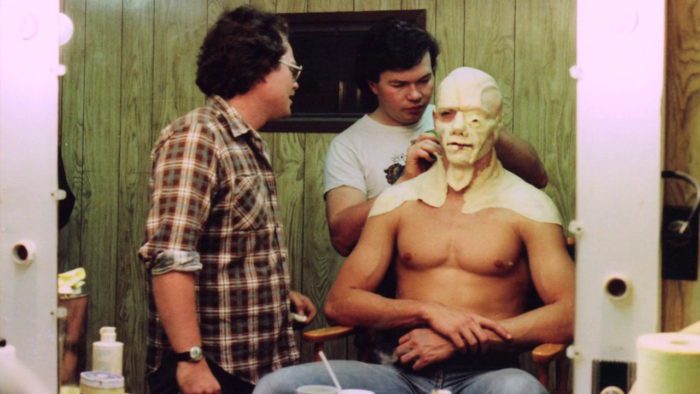
The flipside to that coin is that once the franchise got back on track with Jason Lives, most horror fans would also say the series began a sharp decline afterward. Sure, Kane Hodder made his first appearance with The New Blood, but those who enjoyed the darker-themed prior entries could feel these later films becoming more polished and redundant. There is nothing wrong with redundancy. Anyone who finds entertainment with this franchise or Halloween or even Saw comes to expect certain things to occur in each film. So, there is nothing wrong with giving the fans what they want, but at the same time, those fans grow up. Once that happens, a franchise needs to grow with their fanbase or hope that the shocks that thrilled the first incarnation of fans will work on a younger crowd. In the case of Friday the 13th, it got left behind.
After one last futile attempt to bring audiences back to theaters with the promise of Jason taking Manhattan, the parent company, Paramount, sold the property to New Line Cinema. With the sole intention of bringing Jason face-to-face with Freddy Krueger, those within New Line got to work in an attempt to make the ultimate crossover film. While Freddy vs. Jason sat in Development Hell, work began on a new entry within the franchise that would divide audiences like no one’s business.
As New Line acquired the right to Jason Voorhees, the name Friday the 13th remained with Paramount. To counter this problem, the creators of this ninth entry titled the film Jason Goes to Hell: The Final Friday. I had mentioned earlier that I am not the biggest fan of the franchise; one reason is that I enjoy New Line’s first entry. Say what you will about this movie, and there’s plenty, but I appreciate the attempt at something different, even if it fails on a spectacular level. Watching a creative team try something different is more appealing to me than continuing with the same rote plot for the ninth time. Will I stand here and say Jason Goes to Hell is a good movie? Never. I appreciate the batsh*t insanity of throwing everything at the wall and seeing what sticks.
Also, I like Jason Takes Manhattan. Sorry if that seems tacked on, but so is the Manhattan sequence in the eighth entry.
As the development of Freddy vs. Jason languished, there was a creative decision made to concoct another entry. While another Jason film moved forward, every screenwriter in Hollywood tried to crack the script for the crossover. What came about was Jason X. Another polarizing entry into the franchise, the idea of the film followed the trend of many other dying franchises: set the film in space. Sitting on the shelf for over a year and released when horror got “self-referential,” the film is too jokey and cheap looking for me to appreciate. Not long after this film’s release, writers cracked the nut for the crossover to end them all.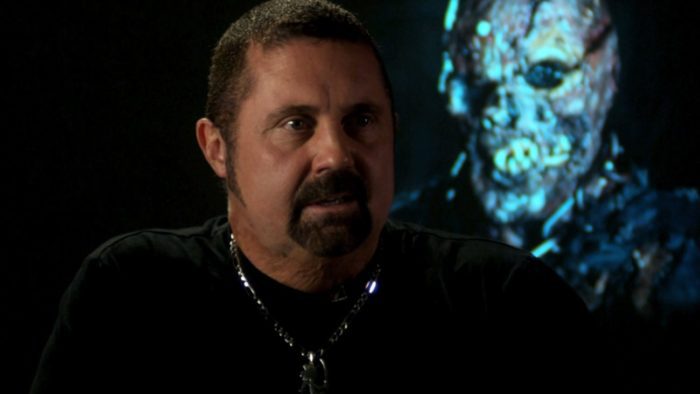
Freddy vs. Jason finally hit screens in August 2003 and wasn’t as polarizing as the two entries that came before. What drew the most ire from fans of the Friday the 13th franchise came from Kane Hodder being removed as Jason and replaced with Ken Kirzinger. I enjoy what Kane brought with the character, but it didn’t bother me as much as those who live and breathe Jason. If I were a die-hard fan of Sean S. Cunningham’s franchise, I would be more upset with the feel of Freddy vs. Jason. As I mentioned above, the tone of Friday the 13th doesn’t work with me—what does work for me is the tone of the Nightmare of Elm Street franchise. And because Freddy vs. Jason feels like a Nightmare instead of a Friday film, it works for me. If I were more of a fan of Jason, Freddy vs. Jason would infuriate me.
Lastly, we got the remake, cleverly titled Friday the 13th. What needs to be said? The first 20 minutes or so are entertaining; Derek Mears makes for a great Jason and, that’s that so, um, moving on!
Ok, so that wasn’t as brief as I thought it would be, but I wanted to make sure you understand my thoughts on this franchise. Why am I spending so much time talking about a franchise I like but do not love? The answer is simple: Crystal Lake Memories: The Complete History of Friday the 13th.
If you’re a fan of this franchise or just of horror in general, the odds are good you are familiar with this documentary. First published as a book by Peter Bracke, director Daniel Farrands did what seemed impossible: go more in-depth than the book. Farrands was able to take Bracke’s dense yet enjoyable read and translate it to film—including additional film details and a look at the Friday the 13th remake.
Crystal Lake Memories is a behemoth of a documentary, clocking in at over six hours—the feature ensures that each film gets its time to shine. As one not well-versed in the orbit that the Friday the 13th franchise inhabits, I could not be more satisfied with the information provided. I’m positive that there is a morsel of dirt here and a nugget of information there that found its way on the cutting room floor or left off altogether, but when you stand back and take in what is on these discs, it’s staggering.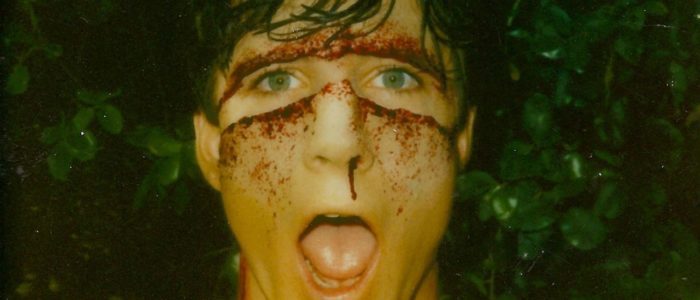
There are multiple reasons why Crystal Lake Memories is the pinnacle (so far) of behind-the-scenes documentaries. First and foremost, the number of people associated with the franchise who appear on camera boggles the mind. Sure, you would expect people like Sean S. Cunningham, Corey Feldman, and Kane Hodder to appear. What about getting producer Frank Mancuso, Jr. to sit through the sequels’ history and talk honestly about the films and production? Yes, please! Shoptalk like that only matters if you care about film production and movie history. For me, this was like catnip!
Crystal Lake Memories is crammed top-to-bottom with those in the know and others who had fleeting moments within the franchise—Alice Cooper, for example. The Godfather of Shock Rock pops in for a minute to discuss his contribution to Friday the 13th Part VI‘s soundtrack. Wes Craven also briefly shows up to share his thoughts on Freddy vs. Jason and what involvement, or lack of, he had with the film.
As a bonus, Crystal Lake Memories included an additional chapter dedicated to the TV show Friday the 13th: The Series. Debuting between Friday the 13th Part VI and Friday the 13th Part VII, the televised incarnation deviated from the films in almost every facet. Gone were Jason and Pamela Voorhees. Tommy Jarvis? Who’s he? Instead, Friday the 13th: The Series focused on a small group who inherit an antique store with cursed objects. Yes, the show is a name-only cash grab, which Frank Mancuso Jr. alludes to in no such words. At the same time, those interviewed about the show had fond memories and were proud to be associated with the show, even if there was nary a hockey mask seen across all three seasons.
What else about this Herculean documentary is there to say? In my mind, there is no such thing as perfection. There are always elements that could be tweaked and added to cater to the most die-hard fan. Noticeably absent are Kevin Bacon, Terry Kiser, and Jared Padalecki, to name a few. In the overall scope of a franchise that, as of the documentary’s 2013 release, spanned over 30 years, having a handful of cast and crew members not appear is a drop in the bucket.
As we wrap up our look at Crystal Lake Memories, I would like to touch upon one final aspect on why I love documentaries like this. Crystal Lake Memories is outstanding for film buffs looking to get into the industry or have a fascination with the process of film production. There is another aspect to a presentation like this, and how it documents history.
When one thinks of Friday the 13th, the thoughts that might conjure up are silly slashers with interesting kills and escapism for 90 minutes. Knowing the franchise and then watching Crystal Lake Memories is equivalent to reading a history book. We hear from the people with boots on the ground and how every characteristic we know and love came about. Nooks, crannies, the ups and downs, it’s all documented for us or our children, who may have yet to experience what the Voorhees clan has to offer.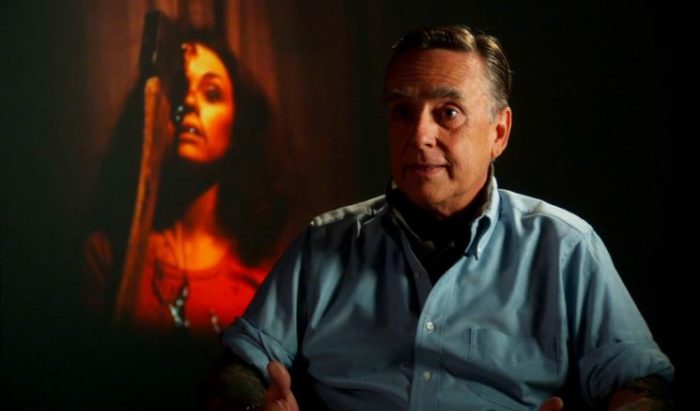
As happens with history, though, the people involved with the subject get older and eventually pass away.
As each chapter of the documentary closes, we are given a mention to an interviewee, if needed, that is no longer among us. Directors Danny Steinmann and James Isaac, along with Richard Brooker, passed away before the documentary’s release. To hear these guys’ thoughts and reminisces about their contributions to the franchise is immeasurable. Taking a step back, you realize that we have recorded history that we cannot ever regain. This documentary holds their words, thoughts, and feelings—preserved on disc, so even after the original creative team has passed, we have an inkling of how creative horror history came about.
Since the documentary’s release, we have lost Betsy Palmer and John Carl Buechler. Thankfully, their words are forever preserved on the documentary as well—showing why Crystal Lake Memories is more than any old EPK fluff piece that production companies produce.
After I bought Crystal Lake Memories, this only emphasized my desire to work on a film set. The documentary has a warts-and-all perspective and works to scare someone away as making a film can be a nightmare. Even as I sat and watched the documentary, Michael Caine’s quote struck me: making a film is terrible, but after the fact, there can be something terrific waiting in the wings.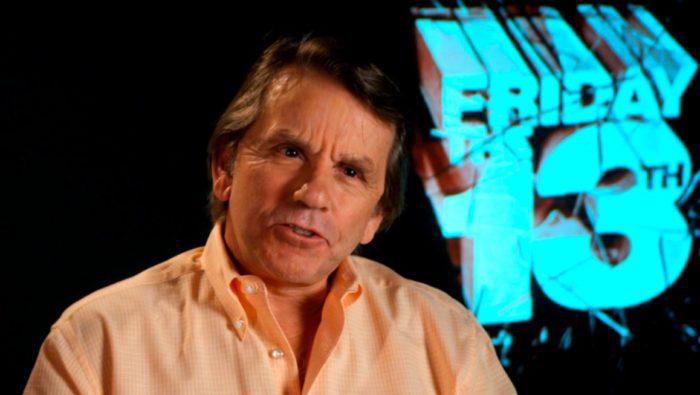
Crystal Lake Memories is a visual history documenting a lauded horror icon and the franchise it helped build. It’s not about a film crew patting themselves on the back for a job well done—it’s a celebration of horror and film production that should be on every film fan’s shelf.


